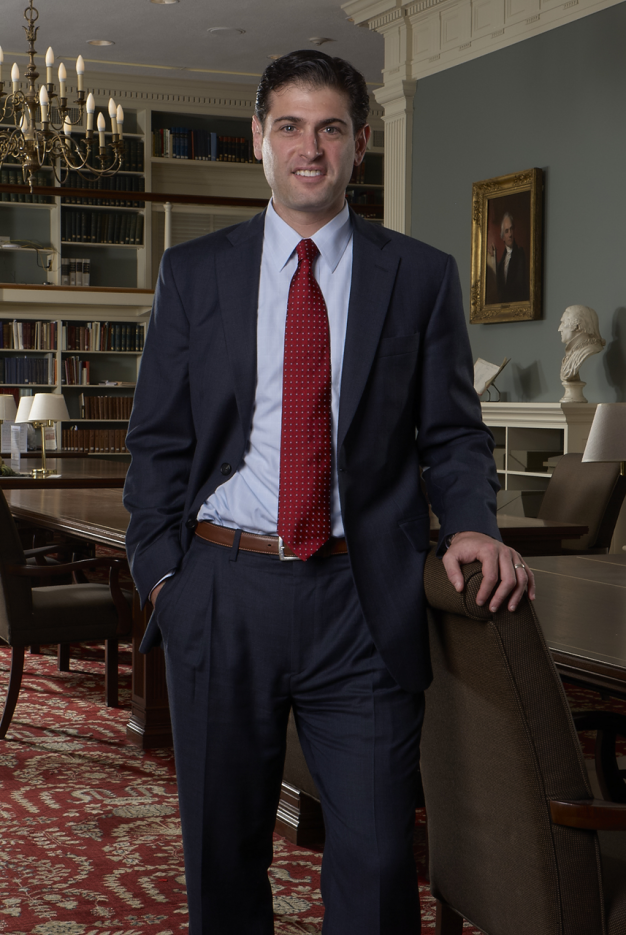Patrick Spero Appointed C.E.O. of American Philosophical Society
Philadelphia [August 20, 2024]—The American Philosophical Society is pleased to announce the appointment of Dr. Patrick Spero as the Society’s next Chief Executive Officer. Dr. Spero will take over the role on January 1, 2025, succeeding Dr. Robert M. Hauser, an esteemed social scientist who has served as Executive Officer since 2017. Roger Bagnall, the Society’s President, said “Along with our entire Council, I am delighted that Patrick Spero is returning to the APS as its next CEO. His deep knowledge and love of the Society and its Members, his scholarly distinction, his energy, and hiscreativity all made him a unanimous choice to build on the Society’s great progress during the years of Bob Hauser’s leadership.”
Spero has a long history with the Society, most recently serving as the Director of the Society’s Library and Museum from 2015 to 2023. During his tenure, Spero led the founding of two research centers, helped endow a third, greatly expanded its digital capabilities, and dramatically grew its fellowship program.
As CEO, Spero will oversee the nation’s oldest learned society, including its Library and Museum, the oldest scholarly press in the United States, and a research program that provides over $2M a year in research support to scholars from around the world. He will also sustain relationships with the Society’s elected Membership—a group of nearly 1,000 scholars and leaders in the professions, arts, and public affairs recognized for outstanding achievements in their fields.
Spero returns to the APS at a transformational time—the Society is undergoing a generational shift in leadership and is in the early stages of implementing a strategic plan focused on opening all of its resources and activities to wider audiences and broadening its services to an increasingly diverse population. Retiring APS Executive Officer, Robert M. Hauser, said, “Patrick Spero’s long experience at the APS, combined with his expertise and reputation as an historian, librarian, and manager, make him the ideal choice to lead the Society toward greater public visibility and influence.”
“The APS was founded on the belief that advancing and improving access to knowledge would improve society. It is an inspirational idea that is just as important today as it was almost three hundred years ago. I am honored to be a steward of this legacy. It is an exciting time for the Society as it launches a new strategic plan that calls on us to embrace new technologies and means of communicating to better serve the institution’s vital mission and extend the reach of its work,” Spero said.
Spero will kick off his return to the APS with the launch of his new book, The Scientist Turned Spy: André Michaux, Thomas Jefferson, and the Conspiracy of 1793. The program, held on Wednesday, September 4, will be free and open to the public. The origins of the book project lie in the APS archive—a little-known document containing the signatures of the first four American presidents spelled out the ambitions of French botanist André Michaux to traverse the American continent in search of a route to the Pacific. The book traces Michaux’s unlikely turn to espionage as an agent of the revolutionary French government, which enlisted him to attract American frontiersmen to gain control of Spanish-held New Orleans and Louisiana.
Dr. Patrick Spero is an award-winning historian who has published widely on the era of the American Revolution. He is the author of four books. They are Frontier Country: The Politics of War in Early Pennsylvania (2016), which was named a staff pick by the Philadelphia Inquirer in 2017; Frontier Rebels: The Fight for Independence in the American West, 1765-1776 (2018), winner of the Philadelphia Athenaeum’s Literary Award and a finalist for the Journal of the American Revolution’s best book of the year; The Scientist Turned Spy: André Michaux, Thomas Jefferson, and the Kentucky Conspiracy of 1793 (2024); and The Other Presidency: Thomas Jefferson and the American Philosophical Society (2024). He is also the co-editor of The American Revolution Reborn: New Perspectives for the 21st Century (2016), a book that one reviewer said “will surely secure a place in the historiographical pantheon.”
Before returning to the APS as CEO, Dr. Spero was the Executive Director of the George Washington Presidential Library. He has also held positions as the Historian at the David Library of the American Revolution and served on the faculty of Williams College, where he taught courses on the American presidency, leadership, and the American Revolution. His first position after receiving his Ph.D. was as a postdoctoral fellow at the APS, where he spent two years surveying the Society’s vast manuscript holdings before 1850 and designed the APS Library’s first digital guide.
In recognition of his scholarly and administrative accomplishments, Dr. Spero is an elected member of the Royal Historical Society in London, the Academy of Arts and Sciences in Lyon, France, the American Antiquarian Society, and the American Philosophical Society. He received his Ph.D. from the University of Pennsylvania and B.A. from James Madison University.
About the American Philosophical Society
The American Philosophical Society, established in 1743 by Benjamin Franklin for the purpose of “promoting useful knowledge,” is the nation’s oldest learned society. An intellectual bedrock of the early United States, the APS counts nearly all of the nation’s founders as Members of the Society. Today, election to Membership honors those who have made exceptionally significant contributions to science, the arts and humanities, and public life.
Beyond Membership, the APS promotes useful knowledge through grants, publications, and a world-class research library. The Society sustains an informed citizenry through twice-yearly meetings and topical conferences and symposia. The APS Press is the oldest continuously operating scholarly press in the country and it is dedicated to publishing research that reflects a broad range of useful knowledge.

